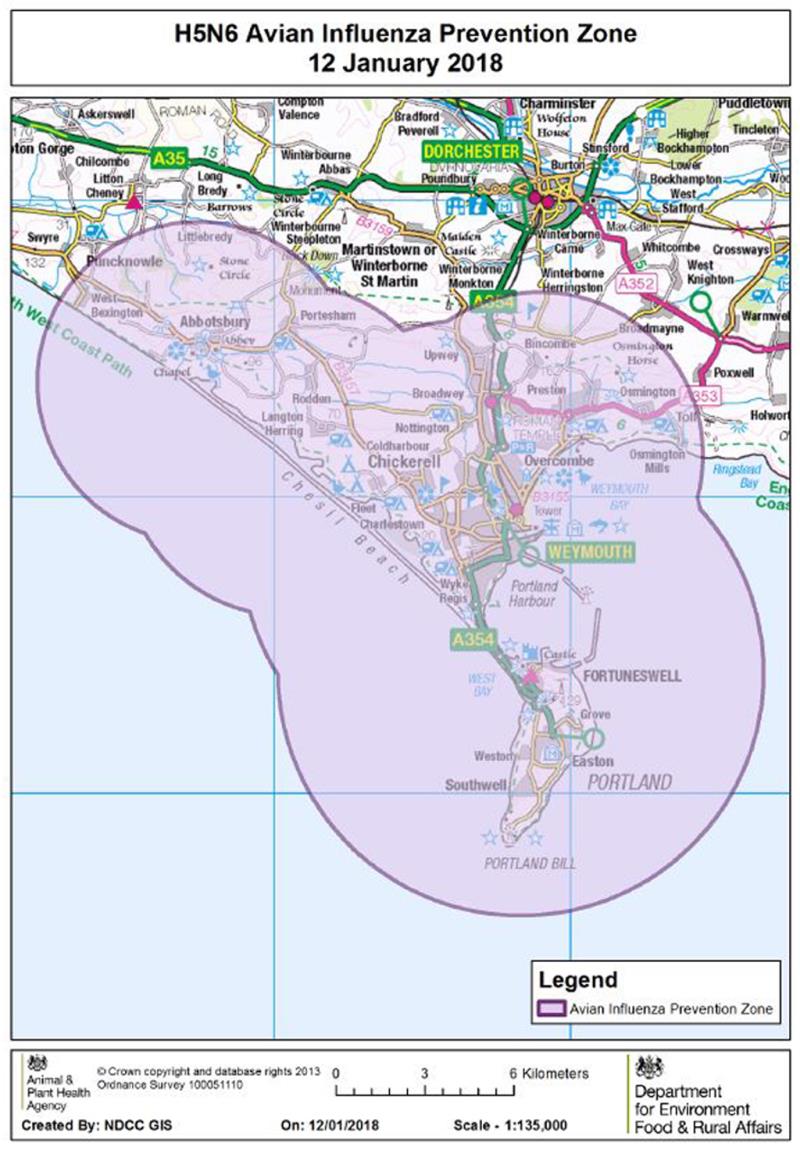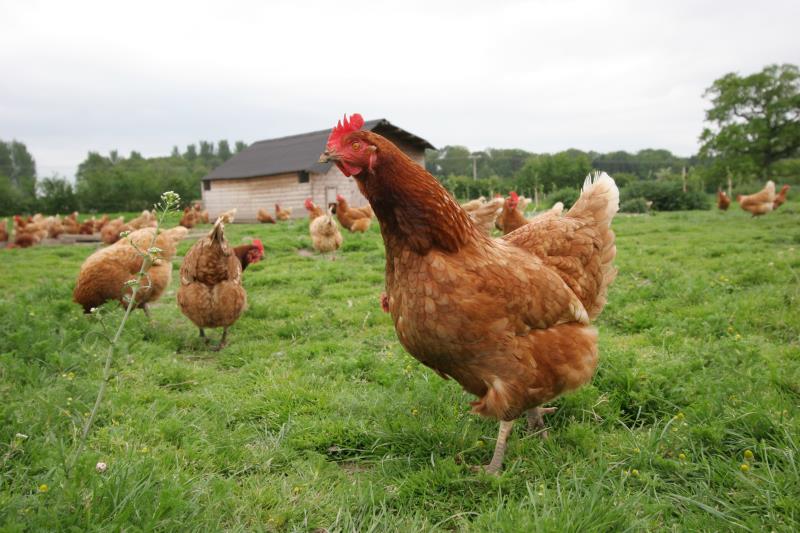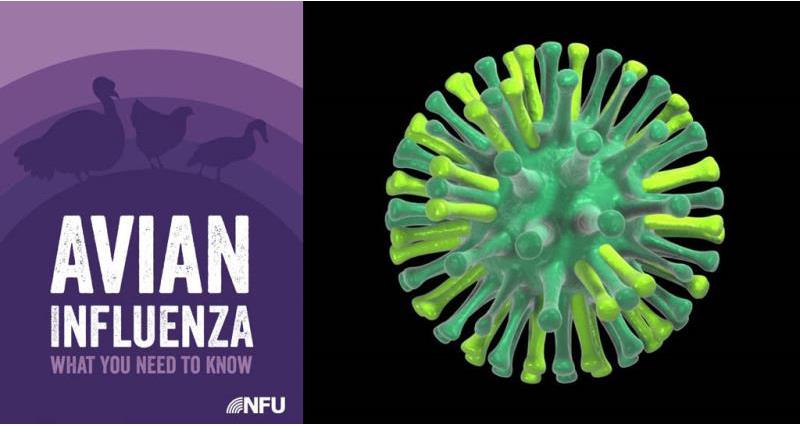It is the first confirmed finding of the virus in the UK this winter, and tests have shown it is closely related to the H5N6 strain that has been circulating in wild birds across Europe in recent months.
This is different to the strain which affected people in China last year and Public Health England has advised the risk to public health is very low. The Food Standards Agency has also offered reassurance that bird flu does not pose a food safety risk for UK consumers.
Chief Veterinary Officer Nigel Gibbens said: “This is the first time avian flu has been identified in the UK this winter and while the disease does not represent a threat to the public, it is highly infectious and deadly to birds.
“As the virus has been circulating across Europe, this finding has not come as a surprise but it is vital that anyone who keeps birds, whether a few in a back garden or thousands on a farm, is vigilant for any signs of disease, reports suspect disease to APHA and maintains good biosecurity to reduce the risk of their birds becoming infected.”
The Chief Vet has confirmed that Defra will be introducing local measures to help manage the potential threat.
A local 'avian influenza prevention zone' will be introduced in the area of Dorset where the diseased birds were found.
This means it will be mandatory for all captive bird keepers to put enhanced biosecurity measures in place such as feeding and watering birds indoors to minimise mixing with wild birds, minimising movement in and out of bird enclosures, cleaning and disinfecting footwear, and keeping areas where birds live clean and tidy.
This is will be in place until further notice and will be kept under regular review as part of plans to monitor the threat of bird flu.

You can view Defra's interactive map here, to find out if you are in a restriction zone.
There are no plans to carry out any culls or put movement restrictions in place.
The risk to domestic poultry nationally remains low. However, good biosecurity is essential and keepers concerned about their birds can refer to Defra's biosecurity advice for bird keepers which includes specific advice for keepers of backyard flocks.

NFU chief poultry adviser Gary Ford said: “The Department for Environment, Food and Rural Affairs (Defra) has confirmed that Avian Influenza H5N6 has been identified in 17 wild birds in Dorset.
“It is vital that all keepers of poultry ensure they have the relevant biosecurity measures in place to protect their birds from any risk of Avian Influenza. The health and welfare of their birds is a farmer’s top priority and practising good biosecurity is the best way of guarding them from this disease.
“The NFU remains in close dialogue with both Defra and the Animal and Plant Health Agency (APHA) to ensure we can continue to support our members with advice and guidance.
"It is important keepers remain vigilant and promptly report any concerns to their private vet or directly to APHA on 03000 200301.”
Read the latest government advice and information on avian influenza in the UK, including actions to reduce the risk of the disease spreading, and advice for anyone who keeps poultry or captive birds.
All keepers are encouraged to register their birds with Defra’s poultry register in order to be quickly contacted with disease information, updates and advice on protecting your birds.
Get advice and guidance from the NFU - including advice for smallholders and non-commercial poultry keepers.
All poultry keepers should:
- Minimise movement in and out of bird enclosures.
- Clean footwear before and after visiting birds, using a Defra-approved disinfectant at entrances and exits.
- Clean and disinfect vehicles and equipment that have come into contact with poultry.
- Keep areas where birds live clean and tidy, and regularly disinfect hard surfaces such as paths and walkways.
- Humanely control rats and mice.
- Place birds’ food and water in fully enclosed areas protected from wild birds, and remove any spilled feed regularly.
- Keep birds separate from wildlife and wild waterfowl by putting suitable fencing around outdoor areas they access.
- Keep a close watch on birds for any signs of disease and report any very sick birds or unexplained deaths to your vet.
If you suspect disease or find dead wild waterfowl (swans, geese or ducks) or other dead wild birds such as gulls or birds of prey, you should report it to the Defra helpline on 03459 335577.
